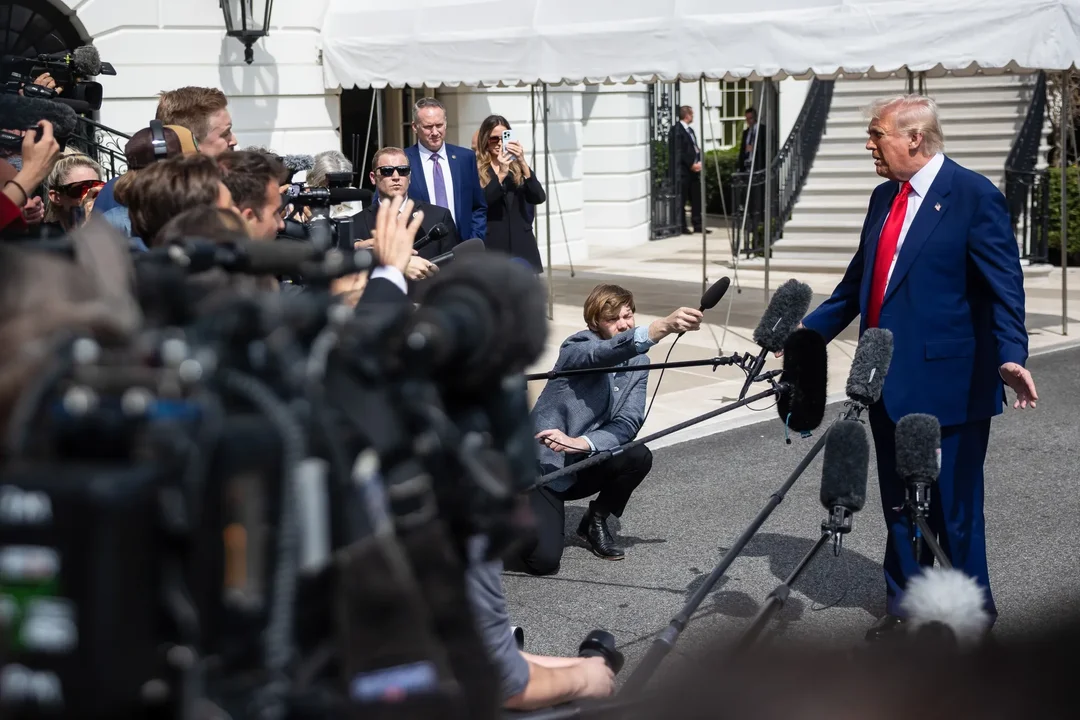
Global Markets React to Trump’s ‘Liberation Day’ Tariffs
In a significant move, former U.S. President Donald Trump announced the imposition of 'Liberation Day' tariffs on imports, leading to widespread reactions across global markets and economies. The tariffs, described by Trump as a measure to bolster American industries, have sparked concerns and criticisms from various quarters, including European leaders who labeled the move as 'fundamentally wrong'.
The financial markets showed immediate volatility, with stocks in industries directly affected by the tariffs experiencing significant drops. Analysts from the Los Angeles Times reported a ripple effect on world states and markets, indicating a potential reshaping of global trade dynamics. New modeling, discussed in The Conversation, suggests that the U.S. could be hit hardest by these tariffs, contradicting Trump's intention to benefit the domestic economy.
European nations, in response, are contemplating retaliatory measures, as noted by The New York Times. This could escalate tensions and further complicate international trade relations. The Guardian quoted several European leaders expressing strong opposition to the tariffs, hinting at possible diplomatic and economic counteractions.
Related issues news
What is the history of tariffs?
Tariffs and excise taxes were authorized by the United States Constitution and recommended by the first United States Secretary of the Treasury, Alexander Hamilton in 1789 to tax foreign imports and set up low excise taxes on whiskey and a few other products to provide the Federal Government with enough money to pay ...
How are the tariffs affecting the stock market?
Stocks tumble as sell-off deepens after Trump's tariffs Stocks cratered on Thursday, with the S&P 500 and Nasdaq Composite suffering their worst session since 2020 as investors flee risk assets over concern that Trump's tariffs will ignite a trade war and spur a recession.
What are the consequences of tariffs?
Tariffs can increase the cost of imported goods, leading to higher prices for consumers and potentially reducing their purchasing power. The tariffs affect a wide range of products across key industries and sectors.
What is Trump's trade war?
On March 10, China imposed a 15% tariffs on American goods, including agricultural goods. Since February 2025, the Trump administration imposed a total of 54% tariffs on China, with the Chinese Government imposing 82% tariffs on the United States.